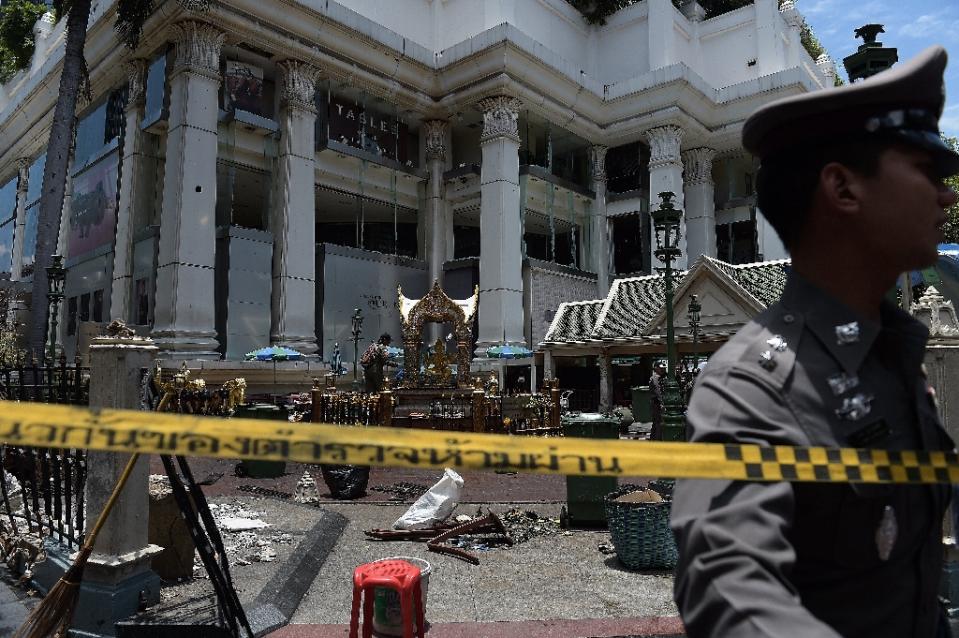Four years after a terrorist attack killed 20 people in the heart of Bangkok, the trial of two Uighur men accused of carrying it out may finally see progress.
The trial of Yusufu Mieraili and Adem Karadag for allegedly bombing the Erawan Shrine nearly four years ago on Aug. 17, 2015, the deadliest such attack in modern Thai history, may finally thaw after being transferred to the civilian justice system last month, their attorney said Wednesday.
“The court has been transferred to the court of justice for about a month now. It was one of the last acts of the NCPO,” Schoochart Kanpai said, using the acronym of the junta that until last month had ruled Thailand for five years.
When a civilian government came to power last month, it triggered the dissolution of the ruling junta, which also meant the return of criminal prosecutions to the jurisdiction of civilian courts.
Schoochart hopes his clients, who were arrested within two weeks of the attack, will appear in court next month.
Their trial by a military tribunal had languished with little progress since it began in early 2016. Of 400 witnesses the prosecution said it would call, only 20 have taken the stand – 12 of those in the past year.
The pair are charged with a slew of counts including possession of explosives, premeditated murder, causing an explosion with intent to maim or kill, property damage and other weapons-related charges.
Schoochart said both men continue to stand by their innocence and intend to fight their case in court. Although Karadag has admitted to enterring the country illegally on a fake passport, he denies having any role in the bombings and maintains that he was tortured into confession numerous times since his arrest.
“The official who was the English interpreter punch me in the stomach many times and threaten to kill me if I did not confess. Sometimes they would say they were going to hand me over to the government of China,” Karadag said in a translated legal statement obtained by Coconuts Bangkok. He maintains that he never visited the location of the attacks until police took him there to stage a “re-enactment.”
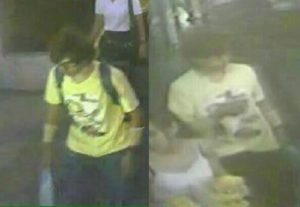
Yingcheep Atchanont, manager of legal advocacy group iLaw, said many cases that had been sent to military trial made little progress.
“All cases that went through the military court during the National Council for Peace and Order era moved incredibly slowly,” he said.
He cited causes for procedural delays including a disorganized scheduling system that saw witnesses called at one hearing only to then wait for their appearance to be scheduled for another hearing which were held infrequently.
The civilian courts are much more efficient, he added.
Another impediment to delivering justice was the military hierarchy. Witnesses often outranked the judges, meaning the judge would show great deference to them and be reluctant to even call them to appear, Yingcheep said.
Now that the trial is before the Court of Justice, Yingcheep said it will be difficult for the 300-odd remaining witnesses to avoid taking the stand.
Mieraili and Karadag, both in their early 30s, are being held at a military facility in Bangkok, Schoochart said. Translation problems dogged the trial from the start, with the military tribunal even hiring an Uzbek expat to help translate that was soon arrested on drug charges. Schoochart said they are still seeking a Uighur translator for the men.
Erawan Attack
The Erawan Shrine at Ratchaprasong intersection was packed with tourists on Aug. 17, 2015, when an explosion ripped through it just before 7pm on a busy Monday evening.
In addition to the 20 killed by the powerful blast, 125 people were injured, many seriously.
What few CCTVs were working in the area showed a man in a yellow T-shirt walk into the shrine and leave a backpack there minutes before the blast.
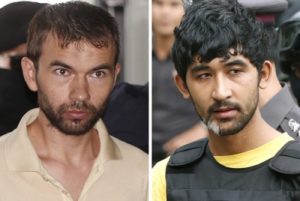
Despite identifying more than a dozen suspects, many with links to Turkey and one Thai woman married to a Turkish man, only Karadag and Mieraili were arrested and charged. A number of forged Turkish passports were found with Karadag when he was arrested.
“The reason I told [officials] I was the man in the photographs was because I wanted them to stop torturing me. … I was in much abdominal pain at that time and was in agony all day. I could not eat rice, and could only eat bread and milk,” he wrote in the statement, which also alleges he was waterboarded.
Thai authorities have denied the allegations they used torture to obtain a confession.
Investigators eventually said he was the one to leave the backpack under a bench at the shrine whie Mieraili helped make arrangements.
Before retiring and taking a lucrative post heading Thai football, the police chief at the time, Somyot Poompunmuang, shocked the public by going on television to hand out THB3 million (US$100,000) in cash “rewards” to his officers.
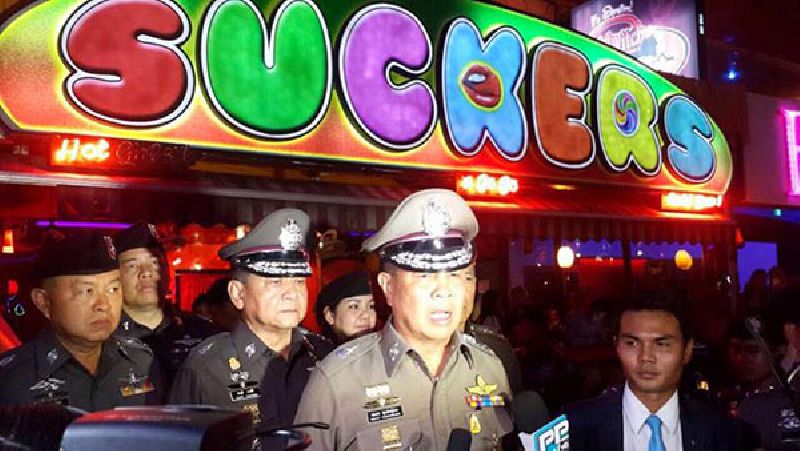
The case was quickly declared closed with little evidence other leads were pursued. Although fingers of blame shifted from domestic political players to southern separatists – as they did earlier this month when non-lethal bomb and arson attacks hit the capital – they quickly turned to transnational terorrism.
Both suspects are ethnic Uighurs from China’s restive Xianjiang province, where attacks had been carried out against ethnic Han settling the area as part of Beijing’s campaign to bring the Muslim-majority province into the national fold. Uighurs are an ethnically Turkic group and their language is similar to Turkish.
Though Bangkok tried to dismiss the attack as revenge by criminal elements for its crackdown on human trafficking, many analysts believed it came as revenge for the ruling junta’s forcible repatriation of hundreds of Uighurs who had fled China back to Beijing where they were tried as terrorists. They believed the shrine was chosen for its symbolic value and because many in the crowd were Chinese nationals on holiday.
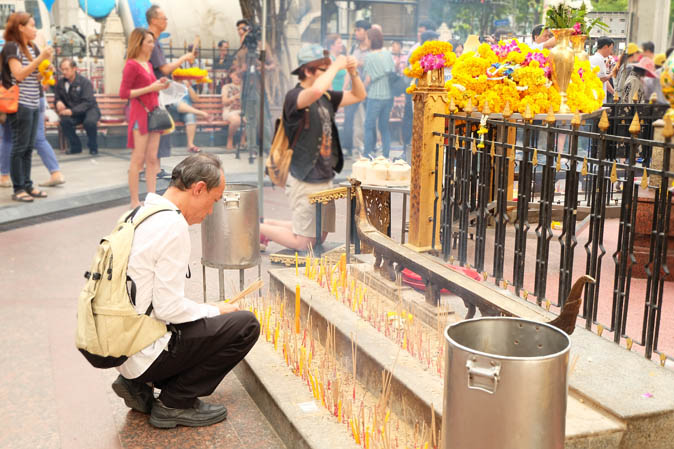
Related stories:
First Thai suspect in 2015 Bangkok bombing arrested
Voices from the street: Erawan Shrine’s spirit is unbowed
PHOTOS: Buddhist monks perform ceremony at damaged Erawan Shrine
